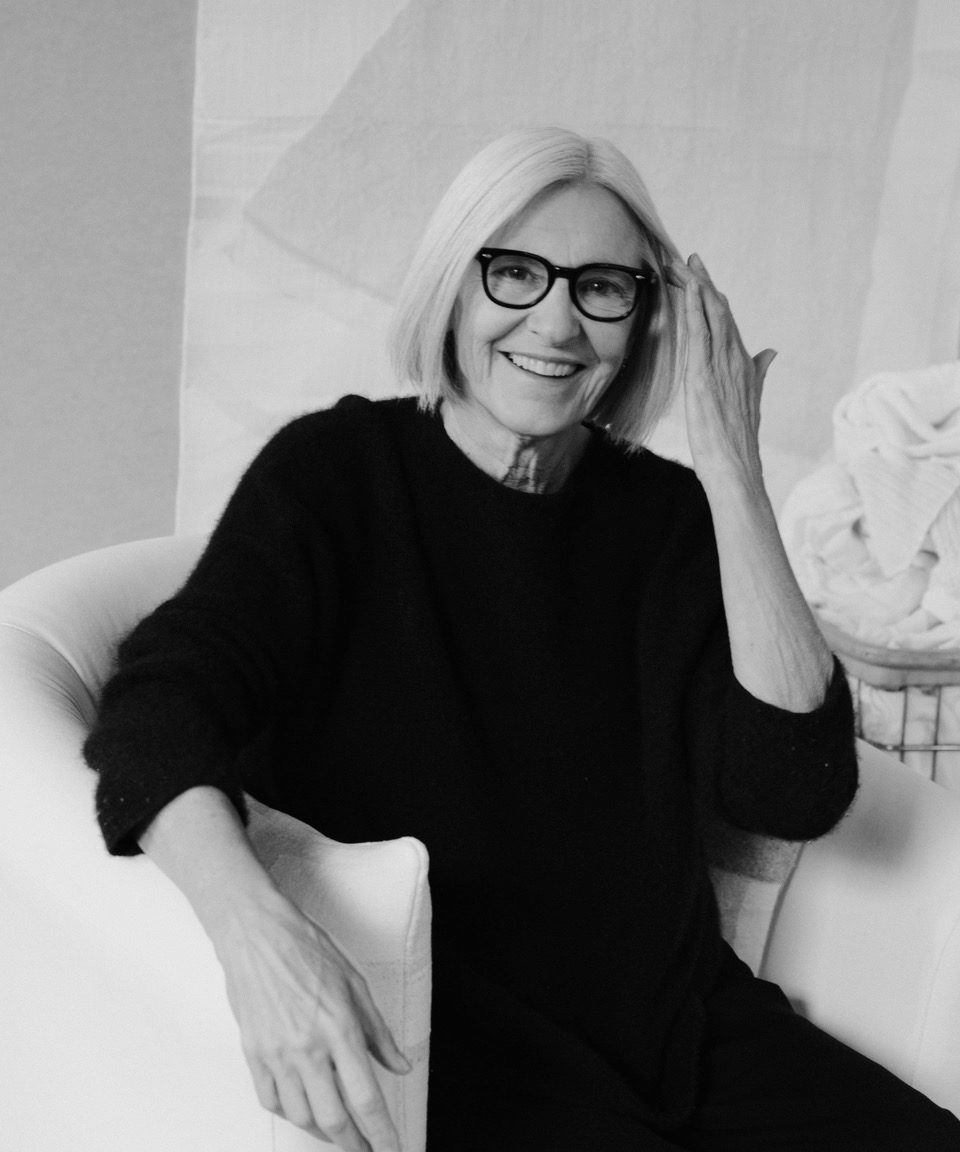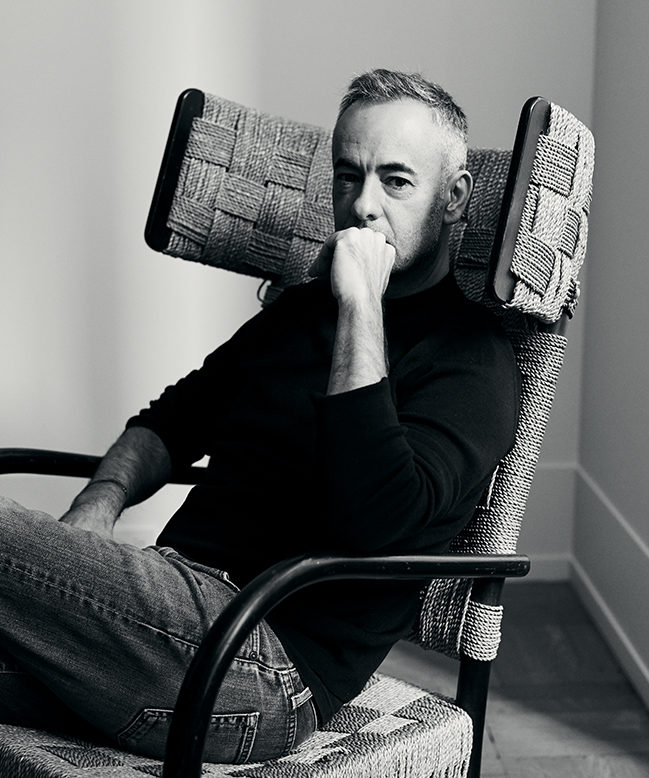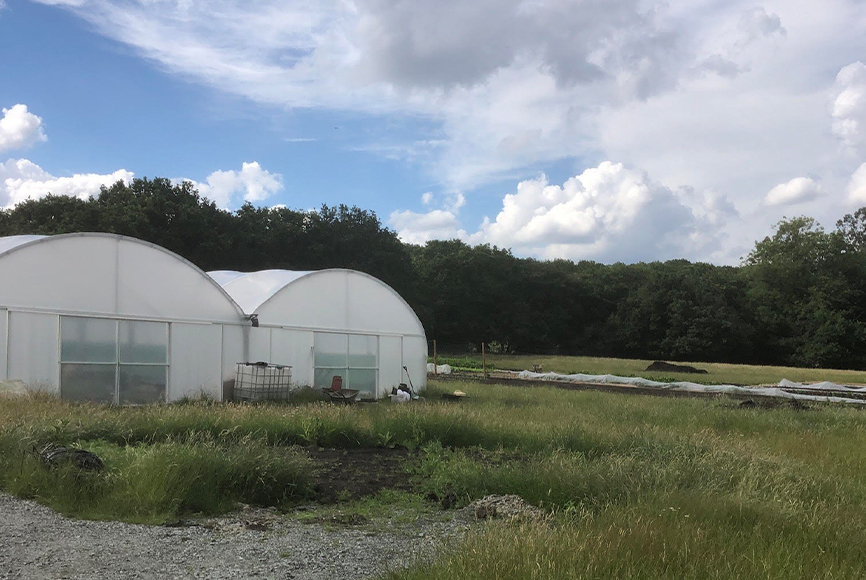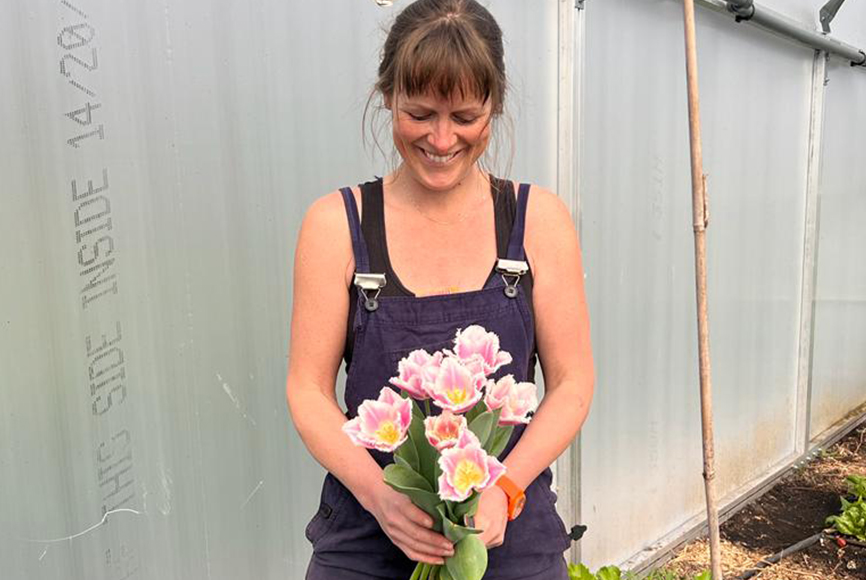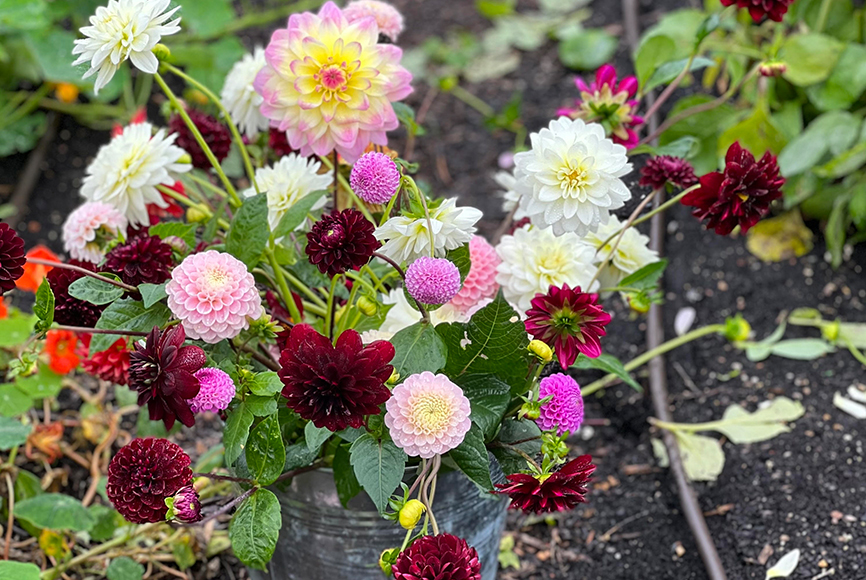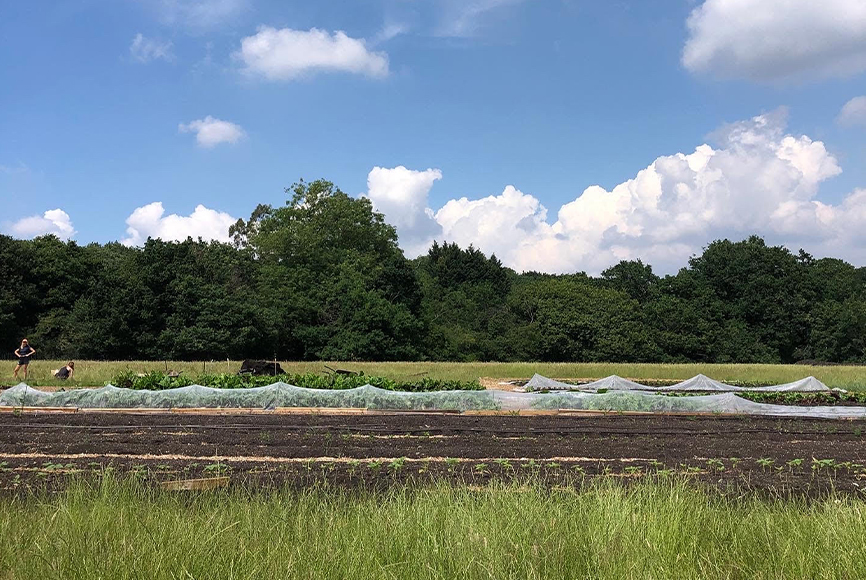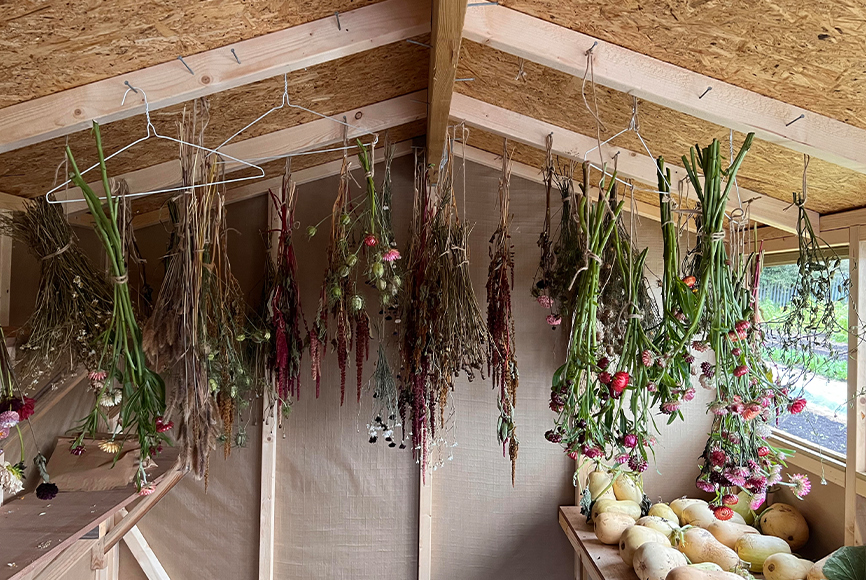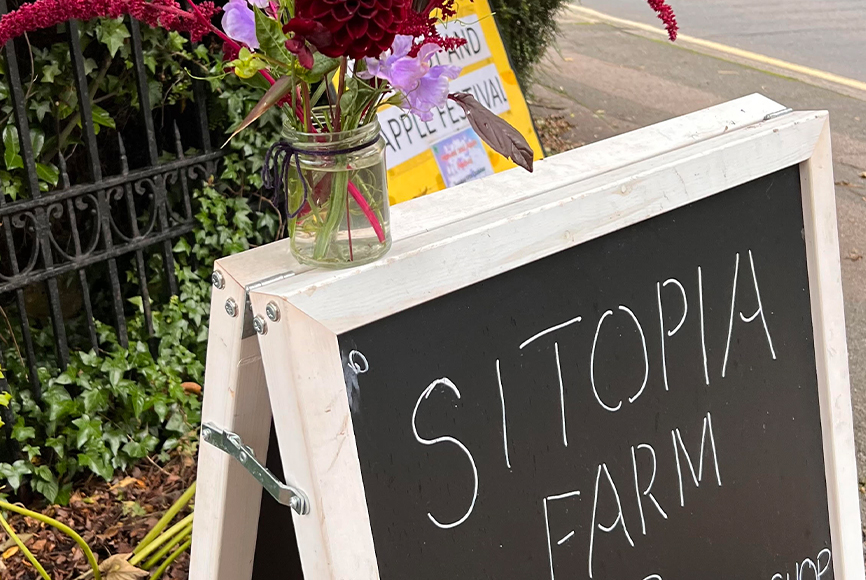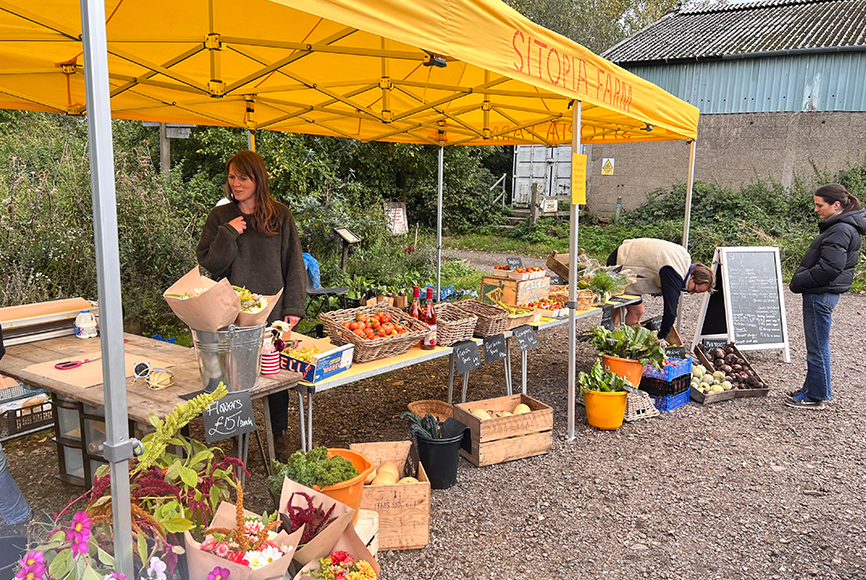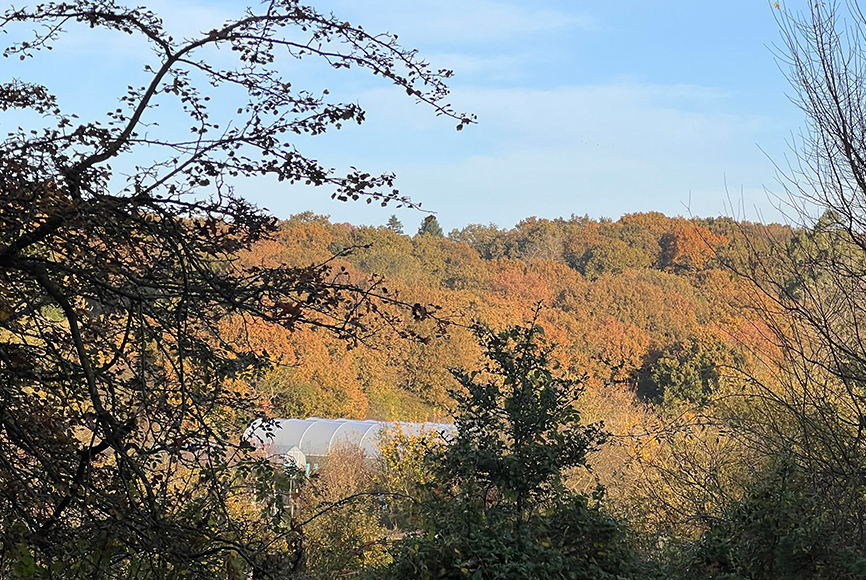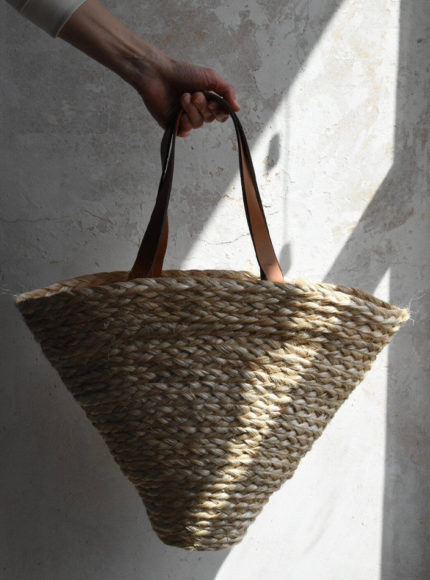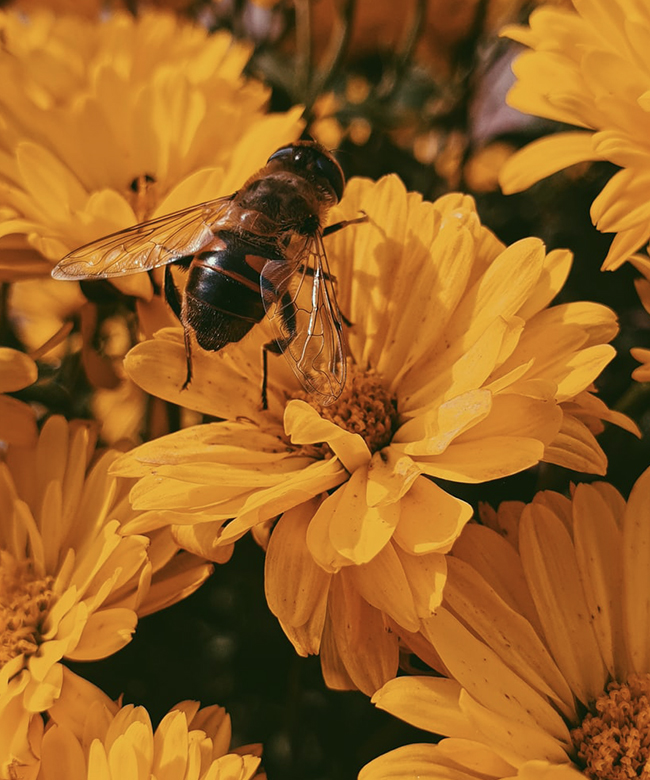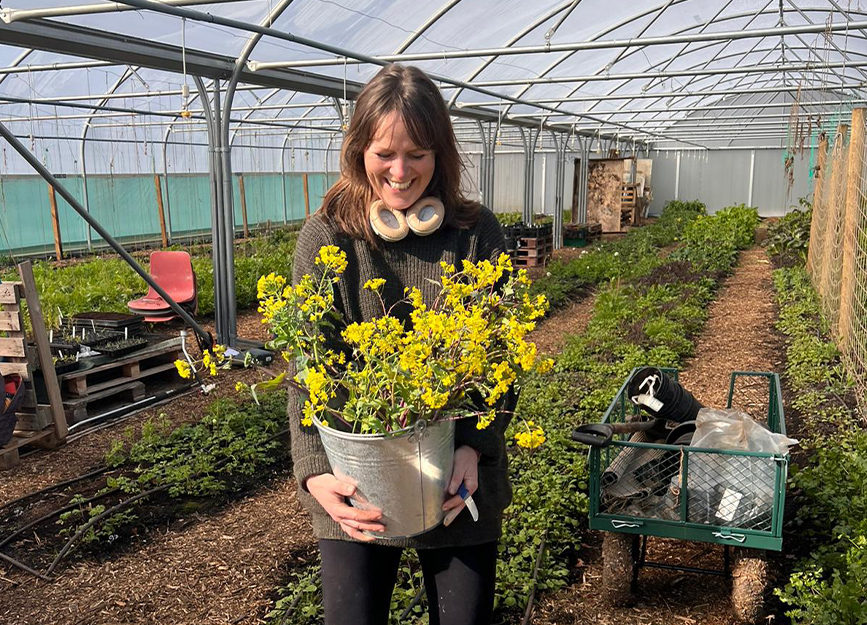

@sitopiafarm
@sitopiafarm
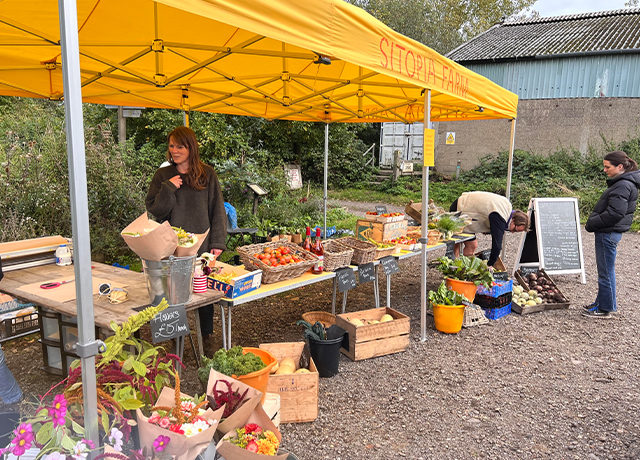

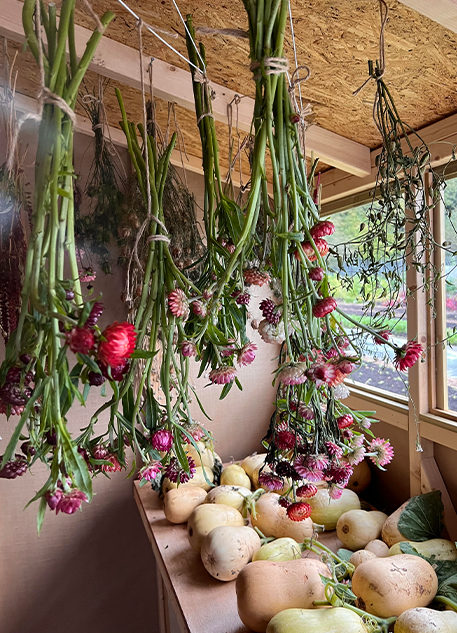

@sitopiafarm
Food & Garden
Regenerative Farming with Chloë Dunnett of Sitopia Farm
We asked Chloë, founder of Sitopia Farm in London, to walk us through the importance of localized, regenerative farming and how you can find organic produce even within the city of London! We hope her words inspire you to start looking at how you can help your local farmers and find a farmer’s market close to you! You can also find their seasonal vegetable bag scheme that we are loving for easy, organic produce below.
“I’ve long been drawn to the natural world and fascinated by the magic that is growing food and plants. I remember the utter joy I felt when I was a little girl and pulled up my first bright orange carrot, from seeds I’d sown a few months before, having cleared a tiny patch of our garden from weeds.”
Chloë Dunnett
So first of all can you explain what Sitopia Farm is?
Sitopia Farm is a modern, urban farm in London. We grow vegetables, fruit, herbs and flowers using organic, regenerative techniques, selling locally and working closely with our community. We’re a not-for-profit social enterprise.
And where does the name come from?
Sitopia means ‘the food place’. Everybody eats. Food is the great connector. We live in a world shaped by food: it is central to our economy, our environment, our health and our culture. For us therefore Sitopia is both a means and an end. Sitopia comes from the Greek sitos, meaning food, and topos, meaning place, and is a play on the word Utopia. Where Utopia means ‘good place’ or ‘no place’, Sitopia means ‘Food Place’. The word was coined by Carolyn Steel, architect, lecturer, author of Sitopia and one of our advisory board members.
Where are you located and how did you end up there?
We’re currently farming on two beautiful acres of land in Greenwich, generously loaned to us by the Woodlands Farm Trust who manage the wider 89 acre farm on which we’re based.
There is a long and a short answer to how we ended up here! In brief, we started farming on various small patchwork plots of land in London at the start of the first lockdown in March 2020. In January 2021 we were lucky enough to partner with Woodlands to access our current, much larger and more permanent site. We launched a crowdfunder that February (a huge thanks to the 400 generous souls who donated!) and started work at the end of March converting what had been a pasture field into our farm. By June we had our first harvests.
Can you begin by telling us a bit about your personal connection to farming – how did your creative spirit with the natural world evolve?
I’ve long been drawn to the natural world and utterly fascinated by the magic that is growing food and plants. I remember the utter joy I felt when I was a little girl and pulled up my first bright orange carrot, from seeds I’d sown a few months before, having cleared a tiny patch of our garden from weeds.
Looking back at an old diary I realise even at university I’d had a secret fantasy about becoming a farmer, but no-one, least of all me, ever entertained that as a serious career option. All the farmers I’d come across then were big white men with tractors and 100s of acres: it wasn’t obvious to me how or why I’d actually be a farmer! But after many years working first in Tanzania and other East African countries for international development charities, and then as a senior civil servant working in central government for over a decade, I decided a few years ago that life was short and it was time to explore my dream. The urgency of the climate emergency and, actually, the sight of empty supermarket shelves during lockdown also spurred me forward. I also passionately believe that we can and should grow more food in the city.
Before we get into all the wonderful ways you are growing sustainably, can you first tell us a bit about some of the unsustainable issues with conventional farming in the UK and even abroad?
Our current food system is broken. While food processing, marketing, pricing, transport, packaging etc all play their part, how it all begins with the actual production of food is a huge part of the problem. Industrial agro-chemical food production- which produces the majority of food sold in the UK- is hugely damaging to the environment. Vast mono-crops, heavy spraying with chemical fertilisers and pesticides, and heavy tillage, has degraded our soils, led to massive biodiversity loss and pollution of our rivers and waterways. Food production is also one of the biggest emitters of greenhouse gases causing the climate crisis.
The problem is that in our current system all these costs – to the environment, to our health etc- are externalised, by which I mean the price tag on food does not reflect these costs. Cheap food is a myth: someone, somewhere, and our planet, are picking up the tab. Of course access to good food and affordability are also critical, and it’s appalling that we have rising food poverty in 2022 in the UK and elsewhere. It’s why I believe we need a proper national food strategy including support for eco-friendly farmers, and taxes for more damaging goods to cross-subsidise and make healthier, more environmentally friendly foods affordable
Can you tell us why seasonality and keeping things local is so important when it comes to our food?
Seasonality is just so important. It means you’re working in harmony with nature, growing food that thrives naturally at given times of the year without the need for damaging and expensive external inputs ike chemical sprays or fertilisers, heated greenhouses, or indeed flying flowers or food here from half-way across the world. (Incidentally why we need to cure ourselves from buying roses on Valentine’s Day!). Eating seasonally also means the food invariably tastes better: I defy anyone not to find the difference in flavour between one of our tomatoes grown in summer and one flown in and sat in a supermarket in winter…
Local is also important though the term is often overused and is misleading. I’ve lost count of the number of times when I’ve asked where my meat is from in a restaurant, and told ‘it’s from the local butcher/ farm’. Which tells me nothing about how it was farmed: it could be industrially farmed, indoor mass-bred meat for all I know.
Local is generally best if it’s seasonal and grown in an eco-friendly way. While we strongly believe that we can and should grow more food in the city, and indeed in the UK as a whole, it’s unlikely ever to be better for the environment for us to attempt to grow lemons or coffee or cacoa beans for chocolate here. If it’s grown organically, shipped rather than flown here, and grown and eaten in season, that’s better. But it’s insane that we import nearly half our vegetables and over 80% of our fruit.
What does it mean to grow food regeneratively?
For me it’s about growing food using organic methods and not tilling (digging or ploughing the soil). It’s about farming to nurture and enhance the environment. It’s about nurturing the soil, keeping it and making it more healthy and fertile. It means growing a wide diversity of crops to support biodiversity and all the benefits that brings, in particular for natural pest and predator control. It’s about using recycled or our own compost, natural foliar sprays and comfrey fertilisers rather than chemical sprays. It’s about harnessing, respecting, and enhancing the power of nature. Being organic (we’re under conversion, and should be fully certified come June) also means that wherever possible all our seeds, inputs (e.g. seed compost) are certified organic.
How have you gone about running the actual farm as sustainably as possible?
Partly it’s about how we farm and all the organic, regenerative farming methods we use. We also strive to consider sustainability in all we do. So for example we are seeking to be an active part of London’s circular economy, using compost made from Londoner’s green waste for our beds, and wood chips from the local tree surgeon for our paths and to make more compost. If we need posts I pay extra to make sure they are FSC-certified wood. We make our deliveries using e-bikes or electric vehicles. We’ve participated in a plastics-alternative trial for organic farmers, and so when we re-launch our seasonal produce bags and flower subscriptions in a couple of weeks’ time, we’ll ensure that all our packaging and labels are either non-existent, or compostable.
“The problem is that in our current system all these costs – to the environment, to our health etc- are externalised, by which I mean the price tag on food does not reflect these costs. Cheap food is a myth: someone, somewhere, and our planet, are picking up the tab.”
Working so closely to nature have you started to see the effects of climate change on the ground?
100%. You saw it last year in the oddly dry and then ridiculously wet spring months, which caused havoc for other growers who were further along than we were. The recent storms were a nightmare for many growers, many of whom lost polytunnels and greenhouses. We can expect to see much more of this. What’s particularly hard is that it’s so unpredictable: if we knew for example that London was going to be consistently hotter and drier than we could grow crops and plan accordingly. But we don’t: it can be unusually hot and dry, but then unseasonably wet and cold. That’s very hard for a farmer.
How does eating more locally help in the fight against climate change?
(probably repeating from above here!) It helps reduce food miles and the pollution, packaging, storage and transport costs involved in that. It often means food is fresher, more nutritious and tasty. Personally I think part of the problem with the food system we currently have is the fact so many consumers are divorced from who and how their food is actually produced. Cultivating a relationship with your local food producer (or at least knowing where your food is really from) helps people to be engaged with the realities of production, and once you’re aware of that why on earth would you want the system we currently have?! That said local isn’t always better and can be used as sloppy inaccurate shorthand for good food- see above!
Do you think the way you grow is scaleable to a larger way of doing things in the food industry?
Yes. I don’t actually think we have a choice. Yields are already beginning to decline in many industrial agro-chemical production systems as those methods strip the soil of its fertility. Without fertile soil you can’t grow as much food. Vast monocrops, lack of genetic diversity and over-reliance on chemical pesticides and fertilisers (not to mention the appalling working conditions many farm labourers endure) also means many crops are now succumbing to disease, such as the Cavendish banana disease wiping out whole plantations.
Of course in addition non-organic, non-regenerative farming is a massive contributor to the climate crisis and biodiversity loss.
I know that you talk about wanting to engage more with local communities in terms of what you are doing – how have you seen the response thus far with people wanting to get involved in what you are doing?
What is one thing that all people can do to help in the creation of a more sustainable food system in the UK?
Vote with your fork. By that I mean use your huge purchasing power. We all eat at least three times a day. Use that to change things. Ask in restaurants where your meat and veg is from and don’t eat it if there isn’t a good answer (ie organic/regenerative). Buy from local veg box schemes. Support independent shops rather than supermarkets. Eat seasonally. Ask your MP what they are doing about the food system crisis. Act. I guarantee it will make a difference.
This is a hard one, but do you have a favourite thing to grow and if so why?
That is hard! Growing cut flowers for sale has been an experiment that has been hugely fun, creative and rewarding and I love all our flowers. But ultimately it’s the food- a basic necessity for all of us- that really gets me going. If I had to choose one favourite to grow I’d probably have to say it’s our tomatoes. We grow about 25-30 different heritage types, of all colours, shapes and sizes. The taste of one of those is indescribable. I absolutely love seeing the look on people’s faces when they try one. People often say it’s the best tomato they’ve ever tasted. And we’ve even managed to convince some children who thought they hated tomatoes to discover that they’re actually delicious.
And finally, what is making you feel most hopeful about the future of food right now?
Growing awareness about the connection between food and the climate crisis and wider environmental issues (not to mention the obesity epidemic, and the fact millions in the UK and abroad suffer from food poverty, which is insane given the obesity epidemic and the huge levels of food waste). I really think people are waking up to the need for change. And farming is becoming sexy! Which is hilarious, but brilliant. And of course utterly true…
Words from Chloë Dunnett @sitopiafarm















